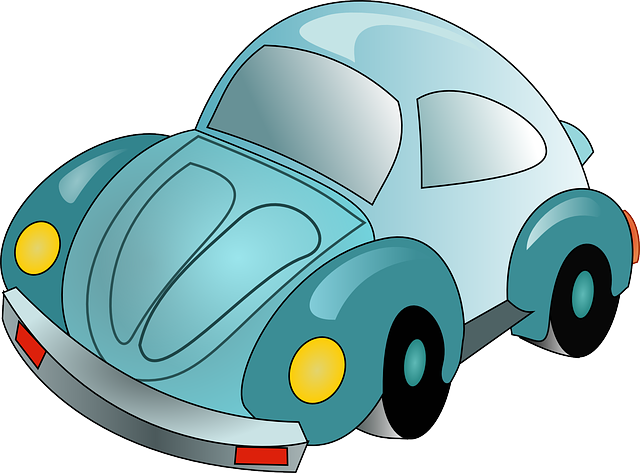Photo: Getty (Getty Images)
The economic situation in America right now is not looking good. There is still some debate — is a recession looming on the horizon, or are we already in one? Regardless of the distinction, many of us are feeling a strain in our bank accounts. Others among us are hoping that a recession could mean killer deals on car prices, but that’s not a guarantee. Here are our tips for anyone entering the car-buying process in tricky economic times. Long story short, the previous trends no longer apply.
A Recession Doesn’t Mean Great Car Deals
Historically, when consumers are in a full-blown recession, they cut back on discretionary spending. During the 2007-2009 recession, vehicle sales dropped by 40 percent. Things got so bad for the automotive sector that the U.S. government had to bail out General Motors and Chrysler. If you were shopping for a new Tahoe or Ram pickup during the 2008 financial crisis, you probably scored a pretty good deal.
Of course, 2008 seems like a lifetime ago, and if the last few years have taught us anything, it’s that previous trends are not a good predictor of the future. During the last recession, dealers were flush with cars and were desperate to clear their lots. Hence, if you were fortunate enough to be able to spend new-car money, there were tons of rebates and discounts to be had.
The situation is totally different today. Currently, the supply-vs.-demand balance still heavily favors the dealerships. Automakers are still having difficulty building enough vehicles due to ongoing supply chain problems. There are many local car lots that look like ghost towns, with only a small handful of vehicles available for sale. Recent data shows that used car prices are trending down, but not by a significant margin. New car prices remain high, and the bulk of new-car buyers are still paying well over the sticker price. A recession might spur some relief, but given the low supply of new vehicles, it’s not likely consumers will see any “bargains.”
G/O Media may get a commission
$400 off
Anker 767 PowerHouse
Powered by GaNPrime
Anker is launching a new power station in its lineup—the Anker 767 PowerHouse. It delivers a massive amount of power at 2400W and has a suitcase design for easy portability.
Also, don’t expect brands to return to zero-percent financing even if the economy takes a dive. While it is possible that interest rates will drop slightly to encourage lending, a no-interest loan is basically a rebate program where the automaker loses out on potential revenue to move some vehicles. Car buyers aren’t likely to see the return of “free money” until dealer lots start piling up with unsold vehicles once again.
What Should Car Buyers Do During This Recession?
Buyers who are entering the car market when their dollars won’t go as far as they used to really need to plan ahead. If you have a functioning car, the best advice is to take care of it and avoid the market for as long as possible. But that advice doesn’t work for everybody. If you’re looking to upgrade because of a growing family, or it’s time to replace an aging, unreliable vehicle, you shouldn’t rely on outdated tactics that may have applied just a few years ago. Your patience and flexibility will be the biggest determining factors in your success.
If we do fall on economic hard times, buyers are in for a double whammy of overpriced cars and stretched paychecks. That’s why it’s absolutely critical to take an honest look at your budget before you start planning a new car purchase.
If you find yourself in the car market and you’re concerned about your job stability or economic future, now is not the time to splurge on a vehicle. Really examine how much money is coming in versus how much needs to be allocated for expenses, rent/mortgage, etc… From there, determine what a comfortable monthly payment would be, and calculate backward for a total budget. I would also recommend planning for a worst-case scenario: “If I lost my job, could I still handle this payment?” Remember, it’s much easier to trade up into something nicer if your situation improves than it is to get out of a car loan you can no longer afford.
Also, I would caution about paying for a car with a large amount of cash. It’s one thing to buy a car that is $15,000 or less with cash, but to part with $40,000 worth of savings to buy a depreciating vehicle may not be the best move. It’s tempting to minimize your debt in a rough economy, but a better move may be to find a balance between a reasonable loan payment and a solid rainy-day fund. If you’re doing well, you can always pay off your loan early.
Look at the Big Picture
A lot of buyers get tunnel vision and focus on only one aspect of a vehicle purchase, when they would be wiser to examine all the angles. Many folks want to transition to hybrid or electric vehicles to reduce or eliminate their fuel costs, but if you end up paying thousands over MSRP for an in-demand car, you’ve neutralized those savings. On the other hand, there are folks who think an SUV with all-wheel-drive is the only way to shuttle a family around, when other more affordable types of vehicles may do the job just fine.
If you don’t want to get saddled with a high car payment, ask yourself: What do I really need to accomplish with this vehicle, and what’s the most economical way to do that?
Tom McParland is a contributing writer for Jalopnik and runs AutomatchConsulting.com. He takes the hassle out of buying or leasing a car. Got a car buying question? Send it to [email protected]
